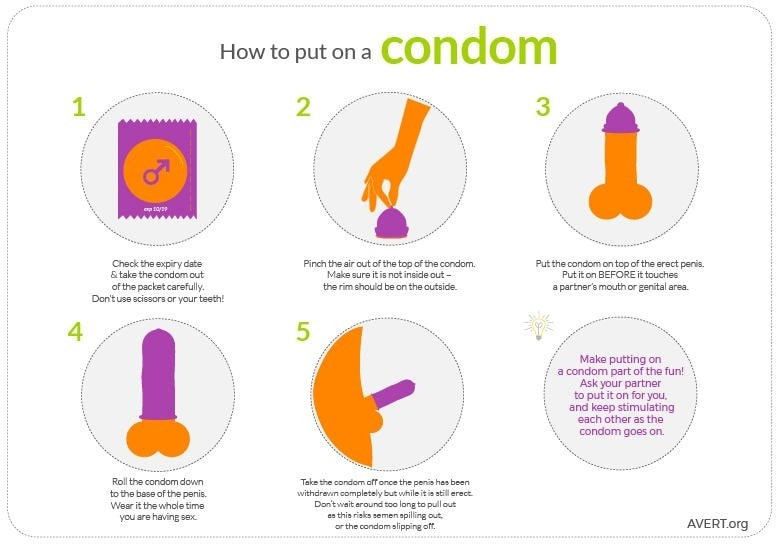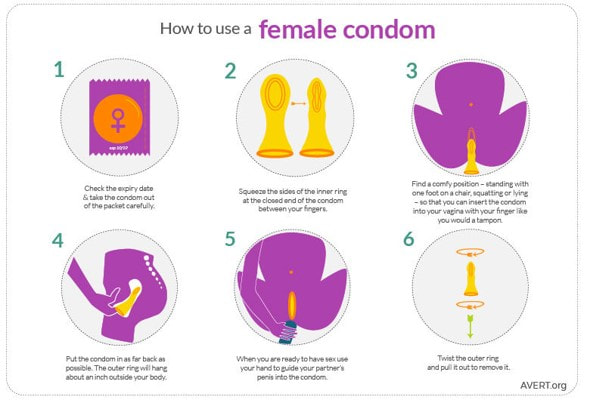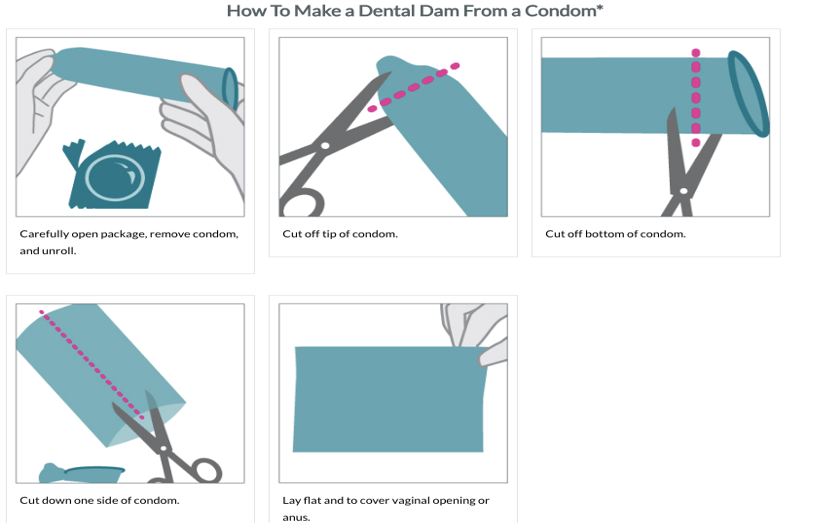Safe sex basics
No mater what sex you are participating in, make sure you do it safe!
Condoms:
Condoms protect against both STIs and pregnancy. When used consistently and properly, they can significantly reduce your chances of passing or receiving a STI.
There are two types of condoms, external condoms (male) and internal condoms (female).
Condoms protect against both STIs and pregnancy. When used consistently and properly, they can significantly reduce your chances of passing or receiving a STI.
There are two types of condoms, external condoms (male) and internal condoms (female).
Condom Tips:
Common Condom Use Mistakes:
- A new condom should be used every time you have sexual intercourse. From the moment the penis comes in contact with the vagina, anus, or mouth, until there is no more contact.
- Carefully unwrap the condom checking to make sure it is not damaged.
- Use water-based lubricant to prevent breakage (oil-based lubes can cause a condom to break)
- Never reuse a condom
Common Condom Use Mistakes:
- Unrolling a condom before putting it on
- No space at the tip
- Putting on two condoms at once
- Wrong size condom
- Not removing the air from the tip
- Improper storage
- Wrong lubricant
|
Dental Dams:
Barrier methods of protection, like a dental dam, can greatly reduce your risk of transmitting or receiving an STI through oral sex. Dental dams can be used for oral sex performed on the vulva or anus. Dental dams can be made from unrolling a external condom, cutting the tip off and cutting down the side. |
Sexual Transmited Infections (STI'S)
Sexually Transmitted Diseases (STDs) are now called Sexually Transmitted Infections (STIs). This is because disease means being sick and having symptoms, while infections means you may not show anything but still pass the sickness onto another person.
Most STIs are caused by germs (bacteria or viruses) that are passed from one person to another during sex or intimate contact.
STIs caused by bacteria can be cured with a short course of antibiotics. If diagnosed and treated soon after infection, a bacterial STI is generally less likely to cause damage to the body.
STIs caused by viruses cannot be cured with antibiotics, but the symptoms can be managed with medication.
STI testing can help find an infection early. If you know that you have an infection, you can get treatment and prevent spreading the infection to others. Left untreated, some STI's can lead to serious problems.
For more information on testing, check out our HIV/STI Testing.
STIs caused by bacteria can be cured with a short course of antibiotics. If diagnosed and treated soon after infection, a bacterial STI is generally less likely to cause damage to the body.
STIs caused by viruses cannot be cured with antibiotics, but the symptoms can be managed with medication.
STI testing can help find an infection early. If you know that you have an infection, you can get treatment and prevent spreading the infection to others. Left untreated, some STI's can lead to serious problems.
For more information on testing, check out our HIV/STI Testing.
Common STI'S
STI's Caused by Bacteria:
|
Chlamydia
Signs & Symptoms
Chlamydia can also infect the throat Treatment Can be cured with antibiotics. If left untreated, it has been known to cause infertility. |
Gonorrhea
Signs & Symptoms
Gonorrhea can also infect the throat. Treatment Can be cured with antibiotics. However, some strains of Gonorrhea have become resistant to some antibiotics. If left untreated, it can cause serious health problems such as infertility, pelvic inflammatory pain, and chronic pelvic pain. |
Syphilis
Signs & Symptoms
Treatment Can be cured by antibiotics. If untreated, it can cause damage to the heart, the brain, and other organs. |
STI's Caused by Viruses:
|
Herpes Simplex Virus (HSV)
There are two types of HSV:
Signs & Symptoms
People can pass HSV even if they do not have outbreaks. Treatment There is no vaccine to prevent herpes and no cure for herpes but medication can help reduce the number and severity of outbreaks. |
Human Papillomavirus (HPV)
Signs & Symptoms
Treatment Most cases of HPV clear on their own within two years. There is a vaccine that protects against HPV and they are best taken before a person becomes sexually active. There is no cure for HPV but there is treatment to deal with the warts. Genital warts can be treated by freezing or putting medication on the skin. Some strains of HPV can eventually lead to cancers of the cervix, vagina, vulva, anus, penis or throat. |



